- Home
- Jim Butcher
Cold Days df-14 Page 8
Cold Days df-14 Read online
Page 8
Man, story of my life. It seems like it’s almost always been a while.
But you have to think about more than what is going to happen in the next hour.
“You’re here because Mab ordered you to be here,” I said. “Anything we did would have an element of coercion to it, no matter how it happened. I’m not into that.”
“You saved my life just now,” Sarissa said. “Some people might think you’d earned my attentions.”
“People think stupid things all the time. The only opinion that matters is yours.” I glanced at her. “Besides, you probably saved me right back. Toting steel into the heart of Winter. Using it right in front of Mab herself? That’s crazy.”
She smiled a little. “It would have been crazy not to tote it,” she said. “I’ve learned a few things in my time here.”
We had reached the doors to my suite, which still felt awkward to say, even in my own head. My suite. Guys like me don’t have suites. We have lairs. Cat Sith had departed discreetly. I hadn’t seen him go.
“How long has it been?” I asked.
“Too long,” she said. She hadn’t taken her hand off of my arm.
“You know,” I said, “we’ve been working together for a while now.”
“We have.”
“But we haven’t ever talked about ourselves. Not really. It’s all been surface stuff.”
“You haven’t talked about you,” she said. “I haven’t talked about me.”
“Maybe we should change that,” I said.
Sarissa looked down. There were points of color in her cheeks. “I . . . Should we?”
“You want to come in?” I asked. “To talk. That’s all.”
She took a moment to choose her words. “If you want me to.”
I tried to think about this from Sarissa’s point of view. She was a beautiful woman who had to be constantly aware of male interest. She was a mortal living in a world of faeries, most of whom were malicious, all of whom were dangerous. Her introduction to the office of the Winter Knight had been Lloyd Slate, who had been one monstrous son of a bitch. She had some kind of relationship with Mab herself, a being who could have her destroyed at any moment she was displeased with Sarissa.
And I was Mab’s hatchet man.
She’d been targeted for death for no better reason than that she happened to be my date at the party. She’d nearly died. Yet she’d taken action to save herself—and me, too—and now here she was standing calmly beside me, not showing the least anxiety. She’d spent months helping me get back on my feet again, always gentle, always helpful, always patient.
She was wary about extending me any trust. She’d been holding herself at a careful distance. I could understand why. Caution was a critical survival trait in Winter, and as far as she was concerned, I was most likely a monster in the process of being born. A monster she’d been given to, no less.
Thinking about it, even if I had saved her life, it wouldn’t have needed saving had she not been with me. I figured that between that and everything else she’d done for me, I was well in her debt.
But I couldn’t help her if I didn’t know more about her.
“For a couple of minutes,” I said. “Please.”
She nodded, and we went inside. I had a little living room outside of my bedroom. I read somewhere that in general, women tend to be more comfortable with someone sitting beside them, rather than across from them. Men tend to be the opposite. Facing each other has undertones of direct physical conflict—in which a generally larger, stronger person would have an advantage. I didn’t know whether it was true or not, but she was already keyed up enough, and I didn’t want to add anything to it. So I seated her at one end of the couch, and then seated myself at the opposite end, out of arm’s reach.
“Okay,” I said. “We haven’t talked, I guess, because I’ve never told you anything about myself. Is that about the shape of it?”
“Trust has to go both ways,” she said.
I huffed out a short laugh. “You’ve been hanging around Mab too much. She’s not big on answering simple yes-or-no questions either.”
Sarissa’s mouth twitched at the corners. “Yes.”
I laughed again. “Okay,” I said. “Well, when in Rome. Maybe we should exchange questions and answers. You can go first.”
She folded her hands, frowning, and then nodded. “I’ve heard a lot of stories about you. That you’ve killed a lot of people. Are they true?”
“I don’t know what you’ve heard,” I said. “But . . . yeah. When bad things came after people in my town, I made it my business to get in the way. And I’ve been a Warden of the White Council for a while now. I fought in the war against the Red Court. I’ve done a lot of fighting. Sometimes people get killed. Why are you in Mab’s debt?”
“I . . . have a form of congenital dementia,” she said. “I watched what it did to my older sister and . . .” She shuddered. “Doctors can’t help me. Mab can. Have you ever killed anyone who wasn’t trying to kill you?”
I looked down at my shoes. “Twice,” I said quietly. “I cut Lloyd Slate’s throat to become the Winter Knight. And—”
A flash of memory. A ruined city full of howling monsters and blood. Flashes of light and roaring detonations of magic tearing asunder stone and air alike. Dust everywhere. Friends fighting, bleeding, desperate. A stone altar covered in a thick coating of dried blood. A terrified little girl, my daughter. Treachery.
A kiss pressed against the forehead of a woman I was about to murder.
God, Susan, forgive me.
I couldn’t see through the blur in my eyes, and my throat felt like the Redcap might be garroting me again, but I forced myself to speak. “And I killed a woman named Susan Rodriguez on a stone altar, because if I hadn’t, a little girl and a lot of good people would have died. She knew it, too.” I swiped a hand at my eyes and coughed to clear my throat. “What were the terms of your bargain with Mab?”
“That as long as I remained myself, and sane, I would attend her and do as she bade me for three months out of every year. Summer vacation, when I was in school. Weekends, now, except for lately. Taking care of you meant that I’d have months and months off to make up for it.” She fidgeted with the bloodied handkerchief. Her split lip had stopped bleeding, and a line of dark, drying blood marred it. “The whole time we worked on your therapy, I think you said something about having a dog and a cat once. But you never spoke about any friends or family. Why not?”
I shrugged. “I’m not sure,” I said. And then I realized that I was lying to everyone in the room. “Maybe . . . maybe because it hurts to think about them. Because I miss them. Because . . . because they’re good people. The best. And I’m not sure I can look them in the eye anymore, after what I’ve done. What about you? Do you have any friends?”
“There are people I sometimes do things with,” she said. “I don’t . . . I’m not sure I’d call them friends. I don’t want to make friends. I have the attention of some dangerous beings. If I got close to anyone, I could be putting them in danger. Don’t you ever worry about that?”
“Every day,” I said. “I’ve buried friends who died because they were involved with my work, and my life. But they wanted to be there. They knew the dangers and chose to face them. It isn’t my place to choose for them. Do you think it’s better to be alone?”
“I think it’s better for them,” Sarissa said. “You’re healthy now. Are you going to go home? To your friends and family?”
“Home isn’t there anymore,” I said, and suddenly felt very tired. “They burned my apartment down. My books, my lab. And my friends think I’m dead. How do I just walk back in? ‘Hi, everyone. I’m back, and did you miss me? I’m working for one of the bad guys now, and what good movies came out while I was gone?’” I shook my head. “I’m making fresh enemies. Nasty ones. I’d be pulling them in all over again. I know what they’d say—that it didn’t matter. But I don’t know what I’m going to do yet. Mab seems to trust you
. What is it that you do for her, exactly?”
Sarissa smiled faintly. “I’m sort of her humanity Sherpa,” she said. “For all of her power and knowledge, Mab doesn’t always understand people very well. She asks me questions. Sometimes we watch television or go to movies or listen to music. I’ve taken her to rock concerts. We’ve gone ice skating. Shopping. Clubbing. Once we went to Disneyland.”
I blinked. “Wait. Your job is . . . You’re BFFs with Mab?”
Sarissa let out a sudden torrent of giggles, until her eyes started to water a little. “Oh,” she said, still giggling. “Oh, I’ve never thought of it like that, but . . . God, it applies, doesn’t it? We do something every weekend.” She shook her head and took a moment to compose herself. Then she asked me, “Is there anyone special for you? Back home?”
Karrin.
But I didn’t dare use her name. No telling what other ears might be listening.
“Maybe,” I said. “It was . . . sort of starting up when I left. I’m not sure where it would have gone. I’d like to think that . . .” I shrugged. “Well. It was bad timing on an epic level. You?”
“Nothing more than casual,” she said. “If I was close to someone, well . . . it would create a target for Mab’s enemies, which I sometimes think is practically everybody in Faerie. Killing the lover of Mab’s pet mortal would be an insult while remaining oblique enough to not allow her room to respond.” She took a deep breath and looked at her hands. “I saw you speaking to her on the dance floor. I saw your face. Who did she tell you to kill?”
I hesitated. “I . . . I’m pretty sure I shouldn’t say. It’s information that could get you into trouble.”
I looked up in time to see the wariness returning to Sarissa’s features. “Ah,” she said. “Well, I suppose our little exchange is over, then.” She bit her lower lip and asked, quite calmly, “Was it me?”
That one caught me off guard. “Uh, what? No. No, it wasn’t you.”
She didn’t move for several heartbeats. “I . . . see.” Then she looked up, gave me a pleasant and false smile, and said, “Well, it’s late. And you should still try to rest as much as you can.”
“Sarissa, wait,” I began.
She rose, her back straight, her shoulders tense. “I think I’m going to my bed. Um. Unless you’d prefer . . .”
I stood up with her. “Don’t think that I’m against the idea, as a general principle. You’re smart, and I like you, and you’re gorgeous. But no. Not like this.”
She chewed on her lip again and nodded. “Thank you for that. For understanding.”
“Sure,” I said. I offered my arm and walked her back to the door of my lair.
(“Lair” worked so much better in my head than “suite.”)
At the door, she looked up at me. “May I ask you a question?”
“Of course.”
“Are you going to obey Mab?”
My brain started gibbering and running in circles at the very thought of what Mab had asked me to do. But I forced it to sit down and start breathing into a paper bag, and then I thought about it for a second. “Maybe. Maybe not.”
“Why?” she asked.
I rocked back onto my heels. It felt like that one little word had thumped me between the eyes with a Wiffle ball bat. Sarissa had hit exactly upon what most bothered me about Mab’s command.
Why? Why now instead of six months ago, or a year ago, or a hundred years ago? Why today instead of tomorrow? Hell, why should I do it in the first place? The whole reason Winter and Summer had a Knight was because the Queens of Faerie themselves were forbidden from directly killing any mortal, and they needed a hit man to make it happen. But Maeve wasn’t a mortal. As far as Mab was concerned, Little Miss Spanglecrotch was fair game.
Why?
“I’m not sure yet,” I said. “But I’m damned well going to find out.”
Chapter Nine
“Cat Sith,” I called, once Sarissa had left.
From behind me, a voice said, “Yes, Sir Knight?”
I twitched and didn’t whirl around like a frightened teenager. I turned in a very urbane and James Bondian fashion, in keeping with my tux, eyed him, and said, “Hell’s bells. Do you always come in like that?”
“No,” the malk replied. He was sitting on the back of the sofa Sarissa and I had recently vacated. “Generally I do not speak. I simply proceed.”
“Are you aware of my orders?” I asked.
“I am aware that you have been given orders. I am to facilitate your ability to comply with them.”
I nodded. “I need to get back to Chicago. Right now. And I need a car.”
Cat Sith turned and padded down the hallway, toward my bedroom. He stopped in the hall at the door to the linen closet and lashed his tail once, then looked at me. “Very well.”
I frowned at him. Then I went to the closet and opened the door.
Autumn air, humid and smothering compared to that of Arctis Tor, flooded into my lair. Brilliant lights shone on the other side of the door, and it took me a few seconds of blinking against them to adjust, and realize that I was being blinded by simple streetlights. Inside my closet, there was a bit of sidewalk and then Michigan Avenue stretching out to the storefront opposite.
I blinked several times. Sith had opened a Way between Faerie and Chicago.
The spirit world, the Nevernever, is vast almost beyond imagining. Faerie is but one part of it, for the most part occupying the realms of spirit that lie most adjacent to the mortal world. The geography of the spirit world isn’t like that of the real world. Different places in the spirit world will connect with places with a similar energy in the real world. So dark, spooky parts of the Nevernever hook up with dark, spooky places in the mortal world.
And my freaking linen closet in Arctis Tor hooked up to Chicago—specifically to Michigan Avenue, to the Gothic stone building across the street from the Old Historic Water Tower. It was night. Cars went by occasionally, but no one seemed to take notice of the open portal to the heart of Winter. Arctis Tor was isolated in the Nevernever, difficult to reach without inside help. Even traveling by Ways takes at least some time, and I’d expected a hike back to the real world.
“How?” I asked quietly.
“Her Majesty had it made,” Sith said.
I whistled. Intentionally forming a connection from a specific place to a specific place took amounts of energy so enormous that even the White Council of Wizards could rarely manage it—I’d seen it done only once in my lifetime, the year before, in Chichén Itzá. “She had it made? For me?”
“Indeed,” Sith said. “In fact, this is, for the time being, the only way in or out of Faerie.”
I blinked several times. “You mean Winter?”
“Faerie,” Sith stated. “All of it.”
I choked. “Wait. You mean all of Faerie is on lockdown?”
“Indeed,” Sith said. “Until dawn.”
“Why?” I asked.
“One presumes it was done to give you a head start.” With that, Sith walked calmly through the door and onto the sidewalk. “Your car, Sir Knight.”
I stepped through the door into the Chicago air, and it slugged me in the face with a legion of scents and sensations and sounds that were as familiar to me as my own breathing. After the cool, dry silence of Arctis Tor, I felt like I’d leapt into the middle of an active circus. There were too many sounds, scents, too much color, too much motion. Arctis Tor was as still as the deepest night of winter, twenty-four/seven. Chicago is . . . well, Chicago.
I found myself blinking my eyes very rapidly.
Home.
I know. It’s corny. Especially since Chicago is what a polite person would call a colorful place. It’s a den of crime and corruption. And it’s a monument to architecture and enterprise. It’s violent and dangerous, and an epicenter of music and the arts. The good, the bad, the ugly, the sublime, monsters and angels—they’re all here.
The scents and sounds triggered a mental avalanche
of memories and I shivered at the intensity of it. I almost didn’t notice the car that pulled up to the curb beside me.
It was an ancient hearse, a Caddy that must have been built sometime in the years immediately following World War II, complete with rounded tail fins. It had been painted dark, dark blue, and given a flame job in shades of electric purple. It wavered and bobbed drunkenly down the avenue, turned a bit too sharply toward the curb, lurched ahead with a roar of the engine, and then skidded to a halt with the brakes locked, missing the posts along the edge of the road, and the chains that hung between them, by maybe an inch.
“Will there be anything else, Sir Knight?” Cat Sith asked.
“Not right now,” I said warily. “Um. Who is driving that thing?”
“I recommend it be you,” Sith said with unmistakable contempt, and then with a swish of his tail, he vanished.
The engine roared once more, and the car lurched but didn’t move from its rest. The lights went on and then off, and then the wipers swept on a few times before the engine dropped to an idle and the brake lights shut off.
I approached the car warily, leaned across the chains, and rapped on the driver’s-side window.
Nothing happened. The windows were tinted a little, enough to make the dark interior invisible on the well-lit street. I couldn’t see anyone inside. I opened the door.
“Three cheers, boys!” piped a tiny cartoon-character voice. “Hip, hip!”
“Hip!” shrilled maybe a dozen more tiny voices.
“Hip, hip!”
“Hip!”
“Hip, hip!”
“Hip!” That was followed by a heartfelt chorus of “Yay!”
Sitting in the driver’s seat of the hearse were a dozen tiny humanoids. Their leader, the largest of them, was maybe eighteen inches tall. He looked like an extremely athletic youth, drawn down to scale. He was dressed in armor made from castoff bits of garbage and refuse. His breastplate had been made from a section of aluminum can, a white one bearing a Coca-Cola logo. The shield on his left arm was made from the same material, this one sporting Coke’s seasonal Christmas polar bears. Part of a plastic toothpaste travel container had been fixed to his belt, and what looked like a serrated butter knife was thrust into it, its handle wrapped in layers of duct tape and string. His hair was violet, a few shades of blue darker than the lavender I remembered, silky, and nearly weightless, drifting around his head like dandelion down. Wings like a dragonfly’s hung from his back like an iridescent cloak.

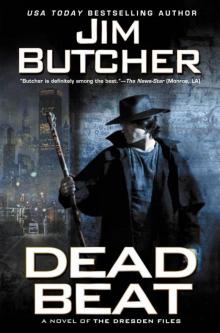 Dead Beat
Dead Beat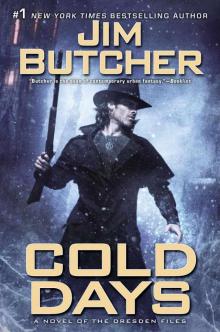 Cold Days
Cold Days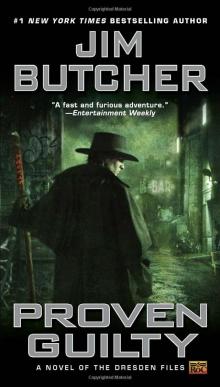 Proven Guilty
Proven Guilty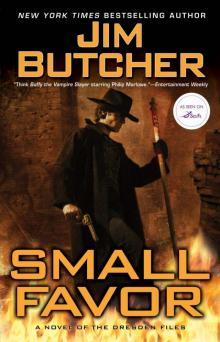 Small Favor
Small Favor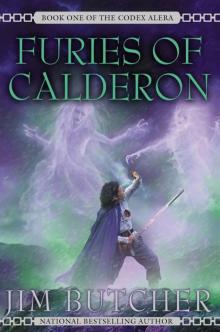 Furies of Calderon
Furies of Calderon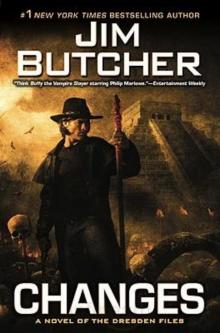 Changes
Changes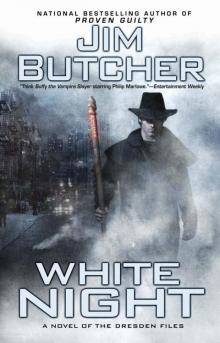 White Night
White Night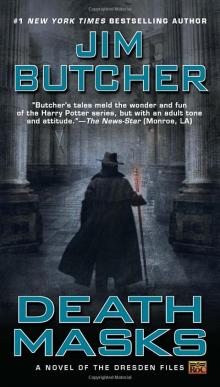 Death Masks
Death Masks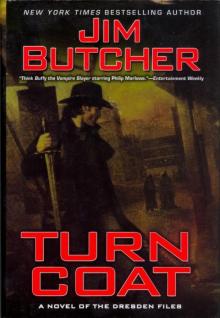 Turn Coat
Turn Coat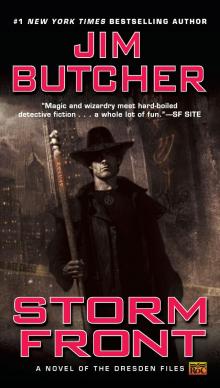 Storm Front
Storm Front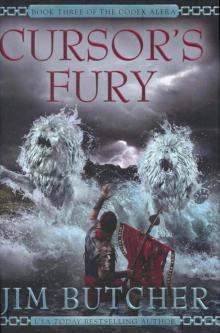 Cursor's Fury
Cursor's Fury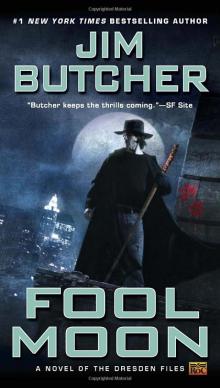 Fool Moon
Fool Moon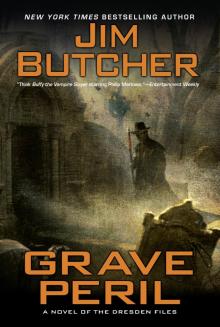 Grave Peril
Grave Peril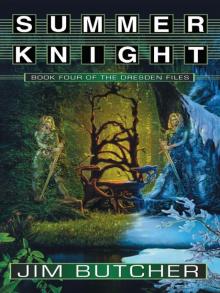 Summer Knight
Summer Knight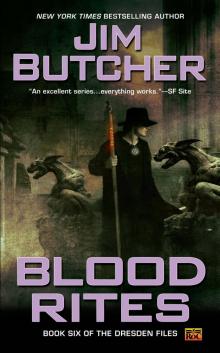 Blood Rites
Blood Rites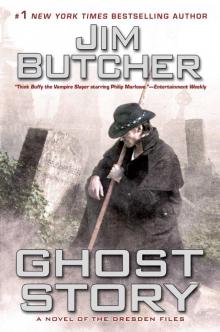 Ghost Story
Ghost Story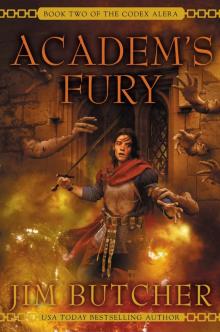 Academs Fury
Academs Fury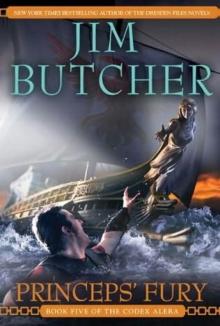 Princeps' Fury
Princeps' Fury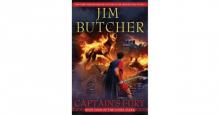 Captains Fury
Captains Fury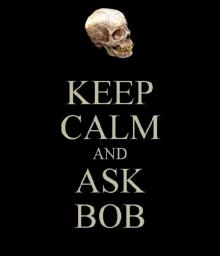 Jim Butcher - Dresden Files Omnibus
Jim Butcher - Dresden Files Omnibus Christmas Eve
Christmas Eve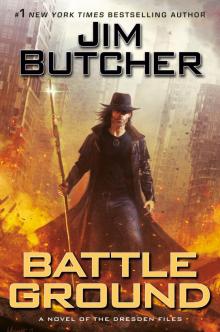 Battle Ground
Battle Ground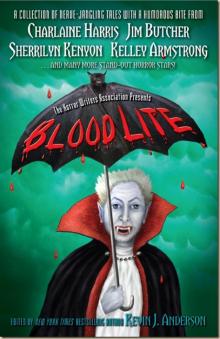 Blood Lite
Blood Lite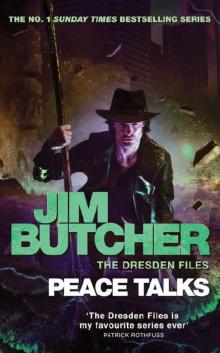 Peace Talks
Peace Talks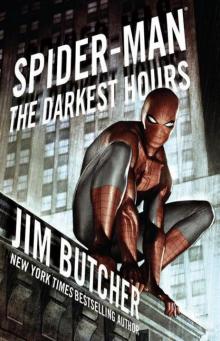 Spider-Man - The Darkest Hours
Spider-Man - The Darkest Hours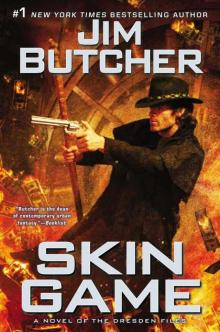 Skin Game
Skin Game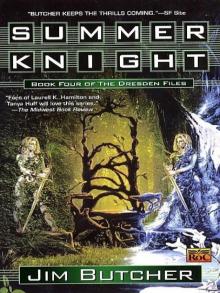 The Dresden Files 4: Summer Knight
The Dresden Files 4: Summer Knight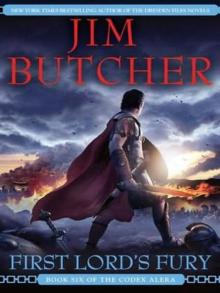 First Lord's Fury ca-6
First Lord's Fury ca-6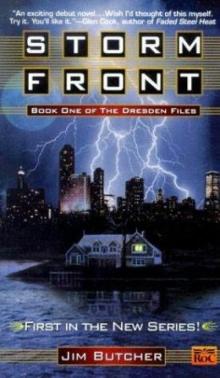 Storm Front df-1
Storm Front df-1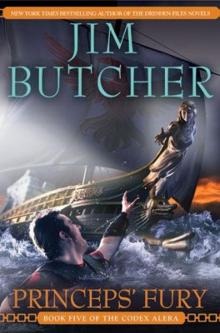 Princeps Fury ca-5
Princeps Fury ca-5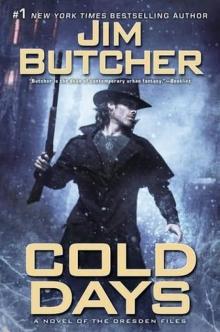 Cold Days df-14
Cold Days df-14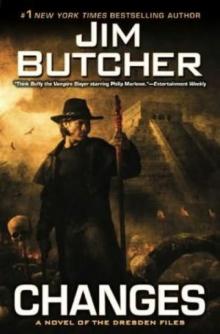 Changes df-12
Changes df-12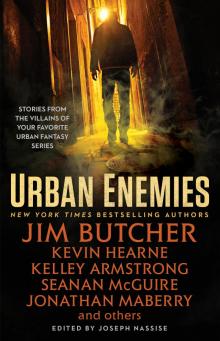 Urban Enemies
Urban Enemies Princeps' Fury (Codex Alera)
Princeps' Fury (Codex Alera)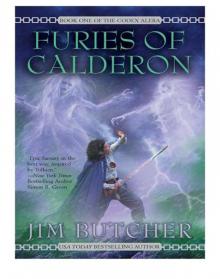 Codex Alera 01 - Furies of Calderon
Codex Alera 01 - Furies of Calderon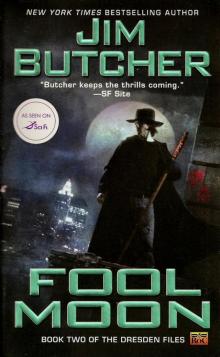 Dresden Files 02 - Fool Moon
Dresden Files 02 - Fool Moon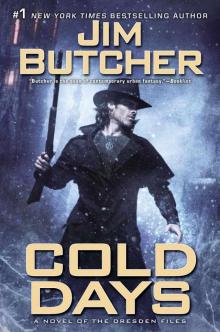 Cold Days: A Novel of the Dresden Files
Cold Days: A Novel of the Dresden Files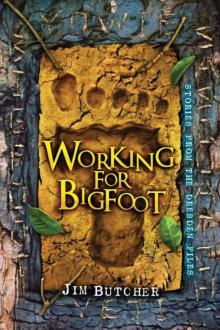 Working for Bigfoot
Working for Bigfoot Side Jobs
Side Jobs Even Hand
Even Hand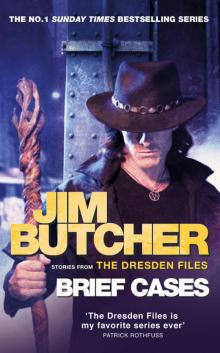 Brief Cases: The Dresden Files
Brief Cases: The Dresden Files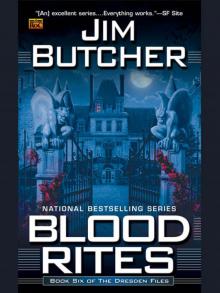 Blood Rites: Book Six of the Dresden Files
Blood Rites: Book Six of the Dresden Files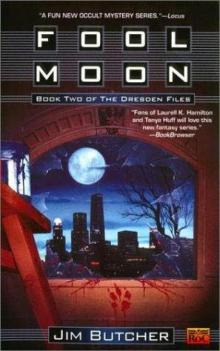 Fool Moon df-2
Fool Moon df-2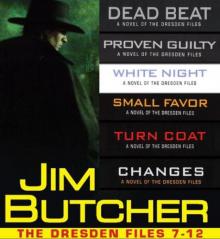 The Dresden Files Collection 7-12
The Dresden Files Collection 7-12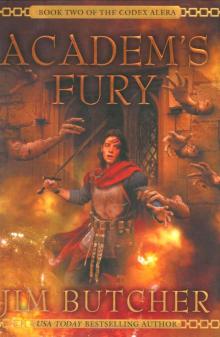 Academ's Fury ca-2
Academ's Fury ca-2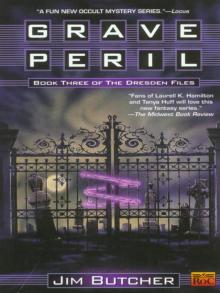 The Dresden Files 3: Grave Peril
The Dresden Files 3: Grave Peril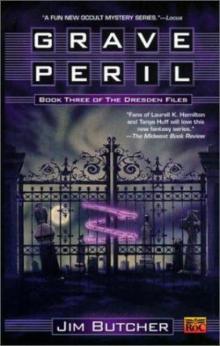 Grave Peril df-3
Grave Peril df-3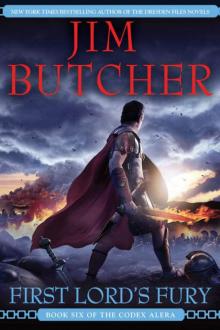 Codex Alera 06 - First Lord's Fury
Codex Alera 06 - First Lord's Fury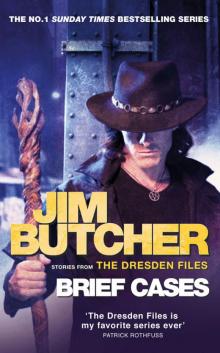 Brief Cases
Brief Cases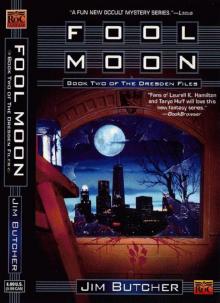 Dresden Files Book 02: Fool Moon
Dresden Files Book 02: Fool Moon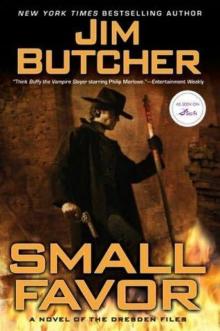 SMALL FAVOR tdf-10
SMALL FAVOR tdf-10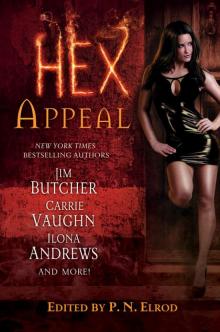 Bigfoot on Campus
Bigfoot on Campus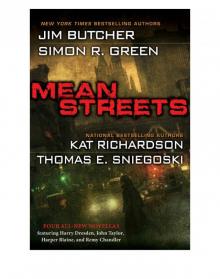 Mean Streets
Mean Streets Dead Beat df-7
Dead Beat df-7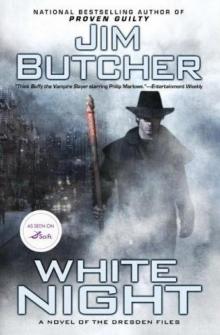 White Night df-9
White Night df-9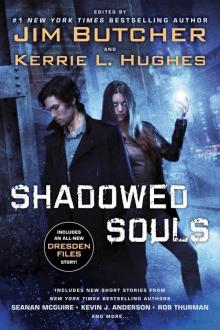 Shadowed Souls
Shadowed Souls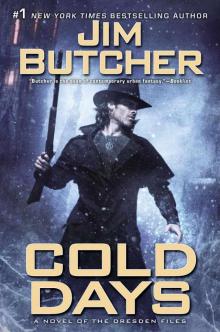 Dresden Files 14 - Cold Days
Dresden Files 14 - Cold Days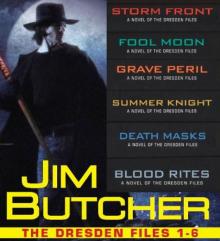 The Dresden Files Collection 1-6
The Dresden Files Collection 1-6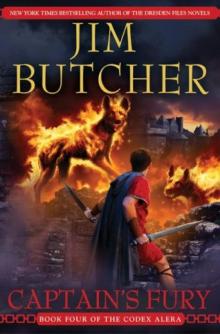 Captain's Fury ca-4
Captain's Fury ca-4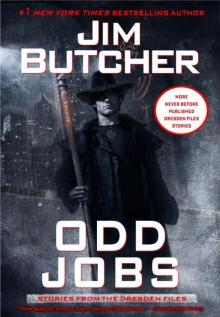 Odd jobs sftdf-2
Odd jobs sftdf-2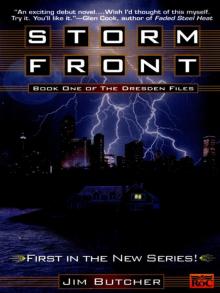 The Dresden Files 1: Storm Front
The Dresden Files 1: Storm Front Blood Rites df-6
Blood Rites df-6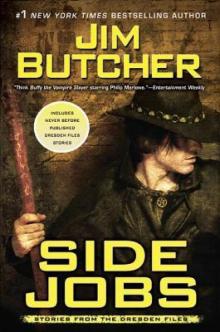 Side Jobs: Stories from the Dresden Files
Side Jobs: Stories from the Dresden Files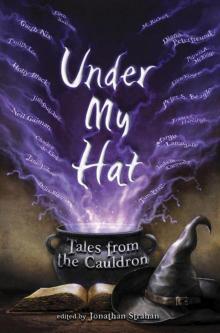 B is for Bigfoot
B is for Bigfoot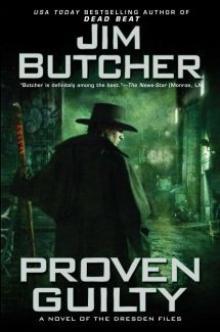 Proven Guilty df-8
Proven Guilty df-8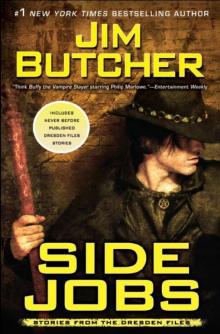 Dresden Files SSC01 - Side Jobs
Dresden Files SSC01 - Side Jobs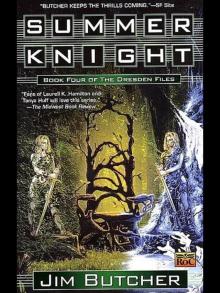 Summer Knight: Book Four of the Dresden Files
Summer Knight: Book Four of the Dresden Files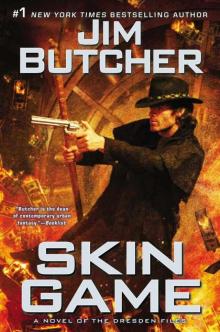 Skin Game: A Novel of the Dresden Files
Skin Game: A Novel of the Dresden Files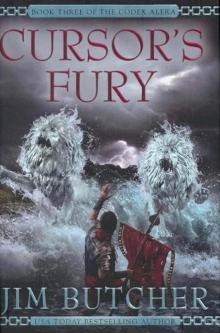 Cursors's Fury ca-3
Cursors's Fury ca-3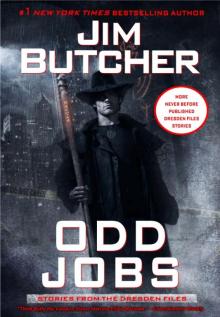 Dresden Files SSC02 - Odd Jobs
Dresden Files SSC02 - Odd Jobs Death Masks df-5
Death Masks df-5 Restoration of Faith (the dresden files)
Restoration of Faith (the dresden files)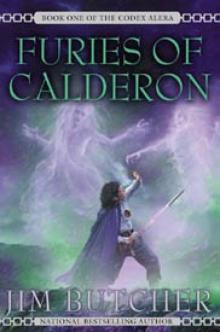 Furies of Calderon ca-1
Furies of Calderon ca-1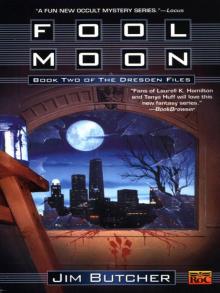 The Dresden Files 2: Fool Moon
The Dresden Files 2: Fool Moon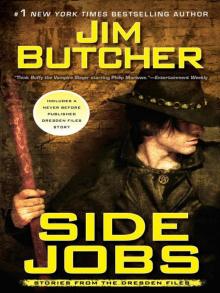 Dresden files:Side jobs (dresden files:short stories)
Dresden files:Side jobs (dresden files:short stories) I Was a Teenage Bigfoot
I Was a Teenage Bigfoot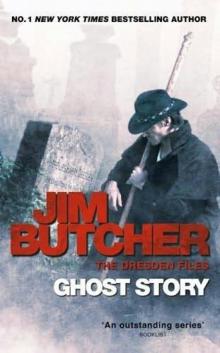 Ghost Story df-13
Ghost Story df-13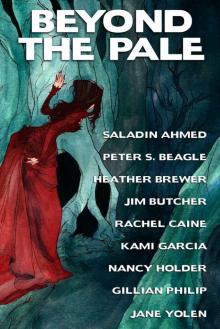 Beyond the Pale: A fantasy anthology
Beyond the Pale: A fantasy anthology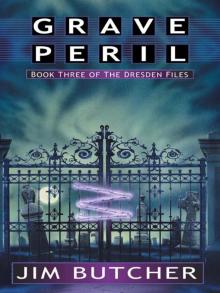 Dresden Files 03 - Grave Peril
Dresden Files 03 - Grave Peril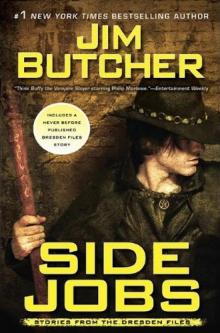 Side Jobs df-13
Side Jobs df-13